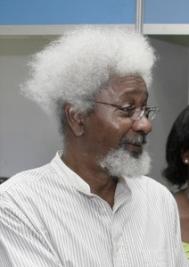"In God we trust" was adopted as the official motto of the United States in 1956 as an alternative or replacement to the unofficial motto of E pluribus unum, adopted when the Great Seal of the United States was created and adopted in 1782.
"In God we trust" first appeared on U.S. coins in 1864 and has appeared on paper currency since 1957. Some secularists object to its use.
It is also the motto of the U.S. state of Florida. Its Spanish equivalent, En Dios Confiamos, is the motto of the Republic of Nicaragua.
History
The phrase appears to have originated in "The Star-Spangled Banner", written during the War of 1812. The fourth stanza includes the phrase, "And this be our motto: 'In God is our Trust.'" According to Ted Alexander, Chief Historian at Antietam National Battlefield, the contracted "In God We Trust" was first used by the 125th Pennsylvania Infantry as a battle cry on September 17, 1862, during the Battle of Antietam of the American Civil War.
The final form of the motto and its placement upon currency were forged entirely within this crucible of national turmoil (lasting from 1861 to 1865). The Reverend M. R. Watkinson, in a letter dated November 13, 1861, petitioned the Treasury Department to add a statement recognising "Almighty God in some form in our coins." At least part of the motivation was to declare that God was on the Union side of the Civil War.
Treasury Secretary Salmon P. Chase acted on this proposal and directed the then-Philadelphia Director of the Mint, James Pollock, to begin drawing up possible designs that would include the religious phrase. Chase chose his favorite designs and presented a proposal to Congress for the new designs in late 1863.
As Chase was preparing his recommendation to Congress, it was found that the Act of Congress dated January 18, 1837, prescribed the mottoes and devices that should be placed upon the coins of the United States. This meant that the mint could make no changes without the enactment of additional legislation by the Congress. Such legislation was introduced and passed on April 22, 1864, allowing the Secretary of the Treasury to authorize the inclusion of the phrase on one-cent and two-cent coins.
An Act of Congress passed on March 3, 1865, allowed the Mint Director, with the Secretary's approval, to place the motto on all gold and silver coins that "shall admit the inscription thereon." In 1873, Congress passed the Coinage Act, granting that the Secretary of the Treasury "may cause the motto IN GOD WE TRUST to be inscribed on such coins as shall admit of such motto."
The use of In God we trust has not been uninterrupted. The motto disappeared from the five-cent coin in 1883, and did not reappear until production of the Jefferson nickel began in 1938. In 1908, Congress made it mandatory that the phrase be printed on all coins upon which it had previously appeared. The motto has been in continuous use on the one-cent coin since 1909, and on the ten-cent coin since 1916. It also has appeared on all gold coins and silver dollar coins, half-dollar coins, and quarter-dollar coins struck since July 1, 1908. Since 1938, all US coins have borne the motto.
In 1956, the nation was at a particularly tense time in the Cold War, and the United States wanted to distinguish itself from the Soviet Union, which promoted state atheism. As a result, the 84th Congress passed a joint resolution "declaring IN GOD WE TRUST the national motto of the United States." The law was signed by President Eisenhower on July 30, 1956, and the motto was progressively added to paper money over a period from 1957 to 1966. (Public Law 84-851) The United States Code at 36 U.S.C. § 302, now states: "'In God we trust' is the national motto."
In 2006, on the 50th anniversary of its adoption, the Senate reaffirmed "In God we trust" as the official national motto of the United States of America. In 2011 the House of Representatives passed an additional resolution reaffirming "In God we trust" as the official motto of the United States, in a 396-9 vote. According to a 2003 joint poll by USA Today, CNN, and Gallup, 90% of Americans support the inscription "In God We Trust" on U.S. coins.
The phrase has been incorporated in many hymns and religio-patriotic songs. During the American Civil War, the 125th Pennsylvania Infantry for the Union Army assumed the motto "In God we trust" in early August 1862.
Feisal Abdul Rauf, a Muslim imam writes that the phrase “In God we trust” resonates with Islamic teaching, offering two verses from the Qur’an: "Our Lord, we have indeed heard a Crier calling to faith, saying 'Trust in your Lord, so we have trusted..." (Quran 3:193) or "[The messenger and the believers] trust in God, in His Angels, His Scriptures, His Books and His Messengers..." (Quran 2:285). Similarly, Melkote Ramaswamy, an Hindu American scholar, writes that the presence of the phrase “In God we trust” on American currency is a reminder that “there is God everywhere, whether we are conscious or not.” In Judaism and Christianity, the official motto "In God we trust" resounds with several verses from the Bible, including Psalm 118:8, Psalm 118:8, Psalm 40:3, Psalm 73:28, and Proverbs 29:25.
After the September 11 attacks, public schools across the United States posted "In God We Trust" framed posters in their "libraries, cafeterias and classrooms." The American Family Association supplied several 11-by-14-inch posters to school systems and vowed to defend any legal challenges to the displaying of the posters.

